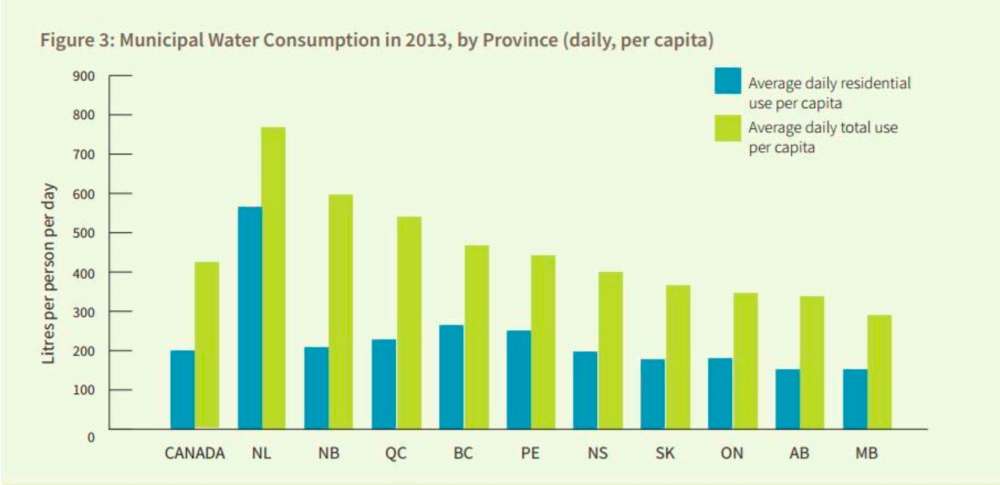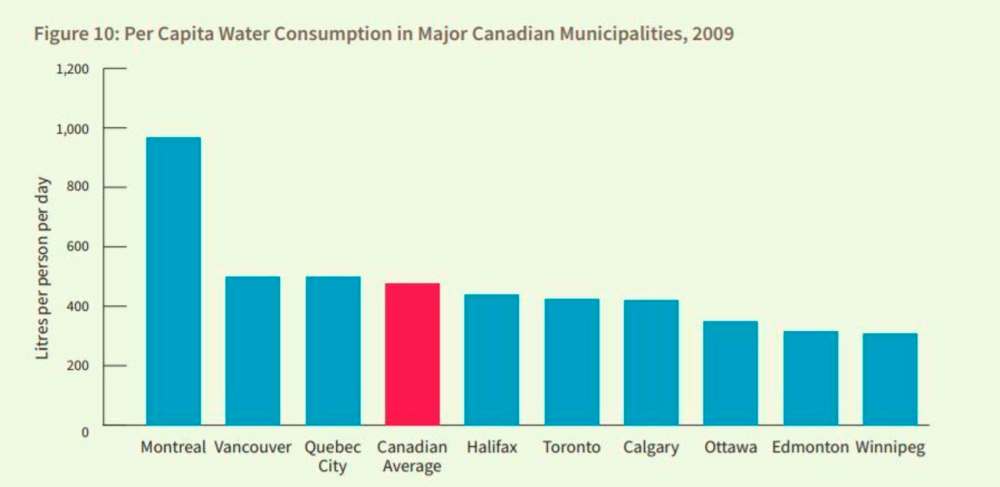Commission questions Winnipeg’s practice of diverting water and waste revenue to pay for other services
Advertisement
Read this article for free:
or
Already have an account? Log in here »
To continue reading, please subscribe:
Monthly Digital Subscription
$1 per week for 24 weeks*
- Enjoy unlimited reading on winnipegfreepress.com
- Read the E-Edition, our digital replica newspaper
- Access News Break, our award-winning app
- Play interactive puzzles
*Billed as $4.00 plus GST every four weeks. After 24 weeks, price increases to the regular rate of $19.00 plus GST every four weeks. Offer available to new and qualified returning subscribers only. Cancel any time.
Monthly Digital Subscription
$4.75/week*
- Enjoy unlimited reading on winnipegfreepress.com
- Read the E-Edition, our digital replica newspaper
- Access News Break, our award-winning app
- Play interactive puzzles
*Billed as $19 plus GST every four weeks. Cancel any time.
To continue reading, please subscribe:
Add Free Press access to your Brandon Sun subscription for only an additional
$1 for the first 4 weeks*
*Your next subscription payment will increase by $1.00 and you will be charged $16.99 plus GST for four weeks. After four weeks, your payment will increase to $23.99 plus GST every four weeks.
Read unlimited articles for free today:
or
Already have an account? Log in here »
Hey there, time traveller!
This article was published 26/09/2017 (2944 days ago), so information in it may no longer be current.
A Toronto-based think-tank has singled out Winnipeg for having one of the best management practices within its water and waste department for calculating its infrastructure deficit and devising a financial plan to resolve it.
But the Ecofiscal Commission questions whether city council is undermining the effectiveness of the administration by repeatedly skimming money from the department’s water and sewer revenues.
Chris Ragan, chairman of the Ecofiscal Commission, said when the group included Winnipeg in its report it wasn’t aware that the city council has been taking an annual dividend from the water and sewer bill revenues — eight per cent between 2011 and 2014 and 12 per cent from 2015 — to help cover the cost of building and maintaining roads.
Ragan said provincial legislation across the country prohibits municipalities from doing what Winnipeg has been doing since 2011 with its water and sewer bills.
!function(e,t,s,i){var n=”InfogramEmbeds”,o=e.getElementsByTagName(“script”),d=o[0],r=/^http:/.test(e.location)?”http:”:”https:”;if(/^/{2}/.test(i)&&(i=r+i),window[n]&&window[n].initialized)window[n].process&&window[n].process();else if(!e.getElementById(s)){var a=e.createElement(“script”);a.async=1,a.id=s,a.src=i,d.parentNode.insertBefore(a,d)}}(document,0,”infogram-async”,”https://e.infogram.com/js/dist/embed-loader-min.js”);
"Winnipeg is not just the exception in Manitoba — it’s the exception," said Ragan, an associate professor of microeconomics and policy at McGill University. "Transparency in policy is a good thing. User fees are way to be very transparent but that means to use the revenue for what they say they are using it for.”
Winnipeggers have to ask what it means if council can take 12 per cent of its quarterly water and sewer bills to pay for roads, he said.
"Can they divert the 12 per cent and say the water infrastructure is perfectly good? If that’s true, then I guess they didn’t need the fees that high," he said. "But if they’re diverting the 12 per cent and at the same time we have an infrastructure gap and we’re short of money, maybe diverting that 12 per cent isn’t a good idea."
The Ecofiscal Commission issued a report Tuesday titled Only The Pipes Should Be Hidden, which encourages municipalities across the country to adopt what it has identified as 10 best practices for managing and operating water and waste utilities. Winnipeg was singled out as an example for having calculated the infrastructure funding gap within the water and waste department and devising a plan to eliminate it.
The commission report identifies three issues most important and under-recognized in Canada when it comes to municipal water: we use a lot of water; most of Canada’s municipalities have serious water-system infrastructure deficits; and we’re more likely to have water crises if we don’t keep up our infrastructure.
The report identifies consumption-based water rates as part of the solution to ensure municipalities are recovering operating costs and making up the system’s infrastructure gap.
The Ecofiscal Commission was formed in 2014 by the country’s leading economists, with a five-year mandate to “identify policy options to improve environmental and economic performance in Canada.”
Provincial legislation requires all municipalities in Manitoba to subject their water and sewer rate increases to scrutiny before the Public Utilities Board, which ensures the rates reflect funds needs to cover operating and long-term capital costs — except in Winnipeg, which sets its own rates without scrutiny from the PUB or any other agency.
Since 2011, successive Winnipeg city councils have diverted a total of $180 million from the revenues collected by the water and waste department from the water and sewer bills to bolster general revenues, often to help build and maintain roads.
Council under former mayor Sam Katz approved an annual eight per cent dividend in 2011 and Mayor Brian Bowman bumped the dividend up to 12 per cent for his first budget in 2015, as a way to maintain his election promise of a cap on property tax increases.
Council approved a three-year rate increase package that saw water and sewer bills increase 9.2 per cent in 2016, 8.9 per cent in 2017, and a further 7.4 per cent in 2018.

Water and waste officials said the increases are necessary to cover not only operating costs but to cover the financing costs for its significant infrastructure projects.
The department said in 2012 that it had a $500-million backlog in repairs to water mains and sewer-line upgrades. In addition, the department is projecting a $1-billion cost for the upgrade to the North End sewage treatment plant and a minimum $1-billion cost to separate the combined sewer system.
Despite the rate increases, the department has yet to resolve the brown water issue and it recently launched a lawsuit against builders for serious problems discovered at the water treatment plant.
"The water might be good now but if you have an event that turns out to be a crisis, wow, is that ever difficult to deal with," Ragan said. "If we’re diverting 12 per cent to build roads and because of that Winnipeg’s water infrastructure ins’t being maintained, that’s the danger."
aldo.santin@freepress.mb.ca
History
Updated on Tuesday, September 26, 2017 9:32 AM CDT: Updated headline



